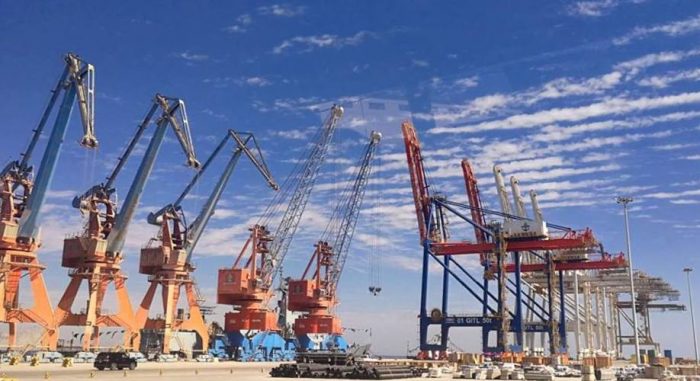Pakistan has confirmed that its plan to develop a massive oil city in Balochistan’s Gwadar district, which will also host the $10 billion Aramco oil refinery, that is expected to be ready by the end of this year.
The development assumes significance as Pakistan seems to have mended its ties with Saudi Arabia after the two countries faced many setbacks in their relations in 2020.
India’s Ambitious AK-203 Manufacturing Deal With Kalashnikov Is Hanging Fire
The proposed model city, to be developed on 88,000 acres of land in Balochistan’s Gwadar district, will host the infrastructure to refine and process petroleum products, the supplies of which will come from the Gulf countries, to be used for local consumption.
Officials privy to the matter told Arab News that the masterplan for the city is underway and may be ready by the end of 2021. “The planning for the mega oil city which will host an Aramco refinery and petrochemical complex is in progress, and we will take six to seven months to complete the masterplan,” Shahzeb Khan Kakar, director-general of Gwadar Development Authority (GDA), was quoted by Arab News as saying.
Meanwhile, Pakistan seems to have mended its ties with Saudi Arabia after the two countries faced many setbacks in their relations in 2020. Now, the world’s largest oil company, Saudi Aramco, is reportedly going ahead with its $10 billion oil refinery project in the proposed megacity in Gwadar.
The two countries had in 2019 signed multiple investment deals worth $21 billion after the visit by Saudi Crown Prince Mohammed bin Salman to the country. The proposed investments covered minerals, energy, petrochemicals, and food and agriculture projects, with companies such as Aramco, ACWA Power, and the Saudi Fund for Pakistan involved in the deal.
With a 250,000-300,000 barrels per day capacity, the Aramco refinery will be ready in about five to six years. Additionally, there is a $1 billion petrochemical complex coming up, which is expected to boost Pakistan’s petrochemical industry by producing polyethylene and polypropylene.

The China-Pakistan Economic Corridor (CPEC), announced in 2014 by Beijing, plans for investment of around $57 billion in infrastructure and energy projects and Gwadar forms the hub of the ambitious project.
The city offers enormous economic opportunities to both Pakistan and China, acting as the gateway to the Middle East, the Central Asian Republics, and even Europe and Africa. The economic and trade potential of the city has attracted many businesses to set shop there.
After a period of strained relations with Saudi Arabia last year, Pakistan is hopeful of the investment commitments made by the kingdom in the business district. The planning for the Aramco refinery is on track and the project is expected to be commissioned in the next five to six years, according to Pakistani officials.
After the visit of Pakistani Foreign Minister Shah Mehmood Qureshi to Egypt where he met Egyptian President Abdel Fattah al-Sisi and Arab League Secretary-General Ahmed Aboul Gheit, there has been an improvement in the relations between Pakistan and Saudi Arabia.
China Thanks UAE For Supporting Crackdown On Uyghur Muslims in Xinjiang Province
The defeat of Donal Trump in the US presidential elections is also thought to have played a major role in forcing the kingdom to rethink its relations with its old friend Pakistan.
Experts say Pakistan is trying its best to mend its relations with many countries, to lure foreign investment and take the country out of the economic crisis. The country sees CEPC as an important factor in achieving that goal and attracting foreign investments.
“Tensions have been dialed down between Pakistan and the Saudis, [and] the flow of investment could resume” Nikkei Asia quoted Arif Rafiq, the president of Washington-based Vizier Consulting as saying. “But Riyadh is unlikely to tilt back toward Islamabad on the Kashmir dispute,” he added.
Saudi Arabia had promised to help set up Pakistan’s mega oil city around two years ago, including building the infrastructure for processing and refining petroleum products and capital investments in the modernization of industry.
The kingdom had been keen from the beginning to ride the CPEC train, which promises huge dividends to all the participating countries with its potential scale.
Follow EurAsian Times on Google News